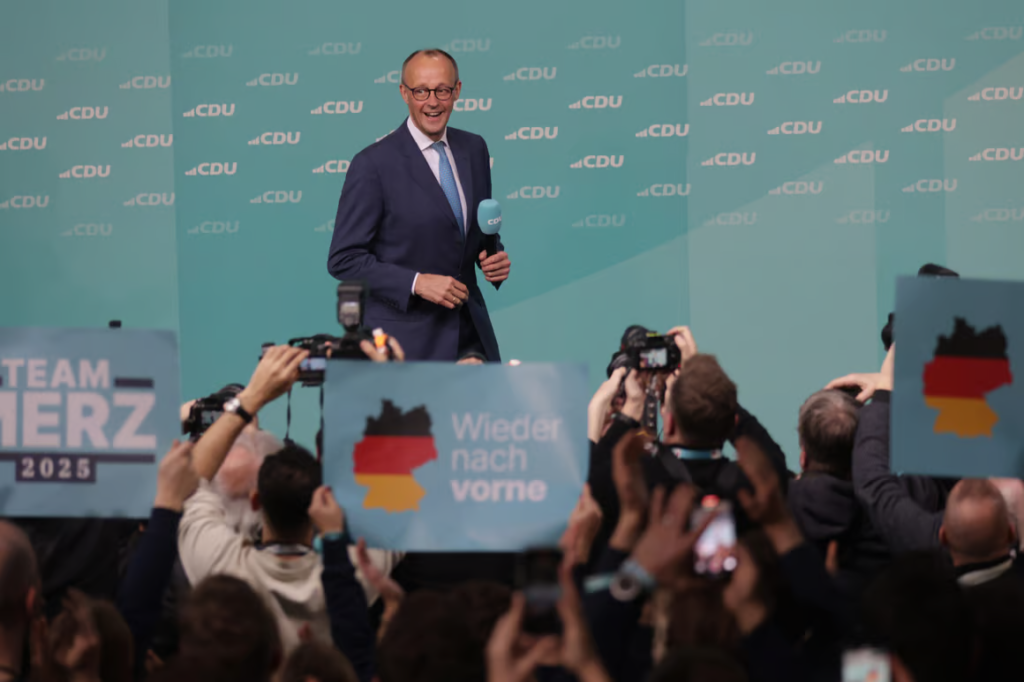The Rise of Friedrich Merz: A New Chapter in German Politics
The recent German national elections have marked a significant shift in the political landscape of the country. Conservative leader Friedrich Merz, head of the Christian Democratic Union (CDU), has emerged as a prominent figure poised to take on the role of Chancellor. With his party securing a strong showing in the elections, Merz’s ascent to power signals a new era for Germany.

Election Results and Political Landscape
The CDU, under Merz’s leadership, won the national election with 28.6% of the votes. This victory positions Merz to form a new government, likely in coalition with other parties. The Social Democrats (SPD), led by outgoing Chancellor Olaf Scholz, experienced a significant decline, securing only 16.4% of the votes. The far-right Alternative for Germany (AfD) also made notable gains, achieving 20.8% of the votes.
Friedrich Merz: A Political Journey
Friedrich Merz’s political journey has been marked by resilience and determination. Born on November 11, 1955, in Brilon, Merz joined the CDU in 1972 while studying law. His political career began at the European level in 1989, transitioning to the Bundestag in 1994. Despite facing setbacks during Angela Merkel’s leadership, Merz made a remarkable comeback, securing the CDU leadership in 2022.
Policy Priorities and Challenges
Merz’s leadership is expected to bring a conservative shift in Germany’s policies. He has emphasized the importance of economic stability, energy security, and stricter immigration policies. His stance on these issues resonates with many Germans who felt that the previous government had not adequately addressed their concerns.
However, Merz faces significant challenges in forming a stable coalition government. The rise of the AfD and their strong performance in the elections complicates the political landscape. Merz has ruled out cooperation with the AfD, but the need for coalition partners remains critical.
Implications for Europe
Merz’s leadership is likely to have broader implications for Europe. His pro-NATO stance and support for military aid to Ukraine indicate a shift in Germany’s foreign policy. Additionally, Merz’s approach to energy policy and migration could influence European Union dynamics and cooperation.
The election of Friedrich Merz as Germany’s Chancellor marks a new chapter in the country’s political history. His conservative policies and leadership style promise to address the concerns of many Germans while navigating the complexities of coalition politics. As Merz takes on this pivotal role, the world will be watching closely to see how his leadership shapes Germany’s future and its role on the global stage.




















